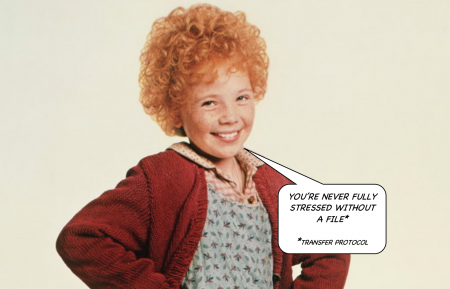When budget allows

|
The sun’ll come out tomorrow
Bet your bottom dollar that tomorrow
There’ll be sun
Just thinkin’ about tomorrow
Clears away the cobwebs and the sorrow
’Til there’s none
Tomorrow! Tomorrow!
I love ya, tomorrow! —
You’re always a day away.
- — “Tomorrow”, from Annie (1977)
“When budget allows” is a mystical, hypothetical time in the future that, like Little Orphan Annie’s Tomorrow, is always there, dangling tantalisingly before us, as each day turns, getting no nearer. It is an indeterminate time of hope and aspiration: a sunlit dream-time in which there will be budget to hook up that feed, build out that API or invest in that brilliant piece of legaltech, for which there is no budget now.
Logicians will immediately sense a paradox. If the worth of the application now is is too small to pass muster, its present value when delivered at some unknowable time in the future is surely smaller still. Through what of contortion in the spacetedium continuum must we crawl to reach that happy land?
Their suspicions will be confirmed by the glint in the middle manager’s eye when confronted with some supplicant SME whose woe-filled entreaties the requested work would address. He will happily promise to sort this all out just as soon as budget allows — a time he can talk about with confidence and without regret, while maintaining eye contact. He can assure her in good conscience that all will be well. For the “time in the future” is, literally, unknowable, in that it will never be known.
For if there is not enough interest to shell out for it now, will it be any closer to that threshold next month, next quarter, or by the time the next fiscal budgeting cycle rolls around?
Rhetorical question.